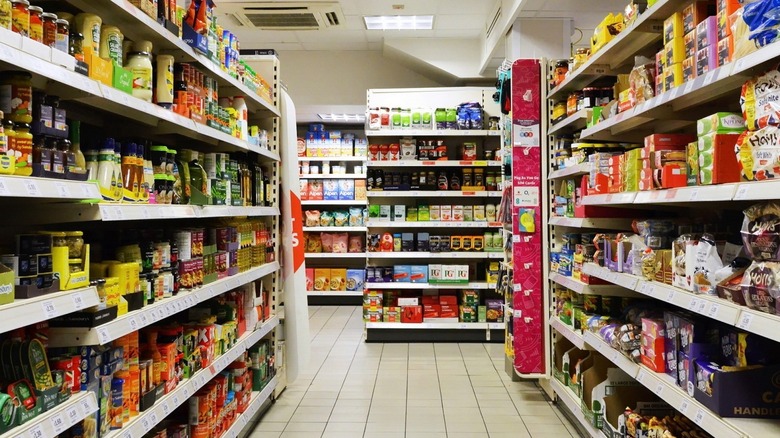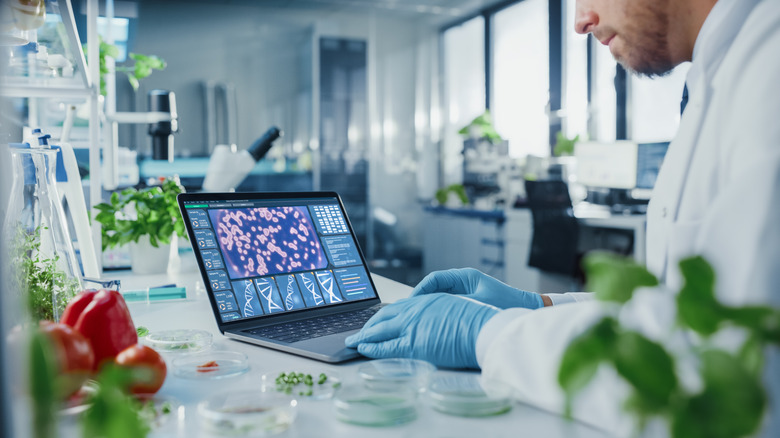The One Type Of Food UK Grocery Stores Are Refusing To Stock
American tourists shopping for groceries at a U.K. store like Tesco might notice several differences from supermarkets back in the States. Aside from the obvious currency switch, shoppers might see plastic-wrapped fruits and vegetables in the produce section (a common sighting in British food stores that's been criticized in recent years, per Business Insider), comparatively cheaper price tags in every aisle, and the proliferation of Jaffa Cakes, HP Sauce, and individually portioned sausage rolls.
What they probably won't find, however, are the products of a relatively new innovation in food science: gene-edited crops, grains, and meat. Tech-generated foods came to the scene a couple of years ago thanks to a system called CRISPR-Cas9, which "edits genes by precisely cutting DNA and then letting natural DNA repair processes to take over," per CRISPR Therapeutics. According to The Guardian, which reported on the system soon after it debuted, these products were received very differently by retailers on either side of the pond. In the States, the US Department of Agriculture said it would "not regulate crops whose genetic changes could have been produced with conventional breeding," while the European court of justice decided that the gene-edited crops "should be regulated as GMOs."
In the wake of Brexit, the U.K. government is allowed to make decisions that defy those of the greater European Union. The country's latest move is to permit the sale of gene-edited foods, per the BBC. But there's one problem: grocers have been staunchly opposed to this technology.
U.K. stores are on the fence about gene-edited products, despite their alleged benefits
According to the BBC, a bill allowing the commercial production of gene-edited crops will be introduced on Wednesday. While the outlet reports that the "biofortified" products may have nutritional benefits for those with vitamin deficiencies, various U.K. grocery stores aren't convinced. Adam Vaughan writes in New Scientist that the permission of gene-edited crops in the U.K. could take effect as early as next year, but that "11 of the U.K.'s biggest supermarkets" said they wouldn't be adding the products to their shelves. Many other large retailers — including the German-based discount chain Aldi — declined to comment on their stance, while Tesco is said to be reviewing it for consideration.
The Scottish government has also been wary of genetically modified crops. And according to the director of the group GM Freeze, "It is a new set of techniques, and it has developed very quickly which means that there is an awful lot that could go wrong. But proponents would cite potential nutritional benefits. Per The Economist, gene-edited tomatoes developed by scientists at the John Innes Centre in Norwich have the potential to benefit consumers through increased production of provitamin D3, which, with the addition of sunlight, can be turned into vitamin D. According to New Scientist, the tech tomato could also decrease farming's effects on the environment. Only time will tell if U.K. retailers will come around to the technology.

